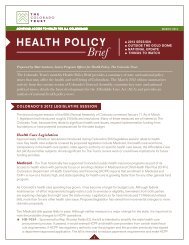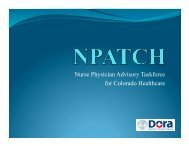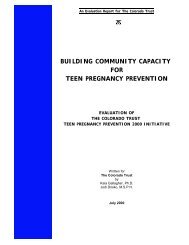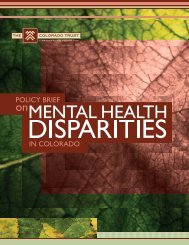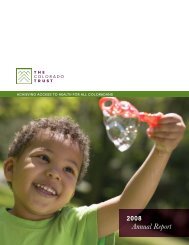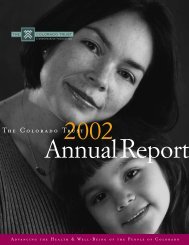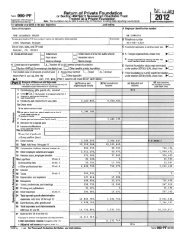After-School Initiative's Toolkit for Evaluating
After-School Initiative's Toolkit for Evaluating
After-School Initiative's Toolkit for Evaluating
Create successful ePaper yourself
Turn your PDF publications into a flip-book with our unique Google optimized e-Paper software.
[ASI program staff may delete some or all of the questions below if they will not be asking questions related<br />
to such topics]<br />
• Being involved in this program has helped me to stay away from tobacco (Yes, Kind of, Not Really)<br />
• Being involved in this program has helped me to stay away from drugs (Yes, Kind of, Not Really)<br />
• Being involved in this program has helped me to stay away from alcohol (Yes, Kind of, Not Really)<br />
• Being involved in this program has helped me to stay away from sex (Yes, Kind of, Not Really)<br />
Your child’s participation in this evaluation is strictly voluntary. Your child is free to refuse participation.<br />
Your child can skip (not answer) questions that he/she does not wish to answer. Participation in the<br />
evaluation is not required nor does it affect program attendance in a positive or negative way. In addition, if<br />
your child leaves or is absent (including voluntary withdrawal, temporary absence, suspension, expulsion or<br />
termination) from [name of ASI program] he/she may still be asked to participate in the evaluation.<br />
There may be some risk to your child from participating in this evaluation. Some of the questions we ask<br />
may be embarrassing or make youth participants feel uncom<strong>for</strong>table. For example, a child may not want to<br />
respond to a question about their self-esteem or personal behaviors. As stated above, your child has the<br />
right to skip (not answer) any of the questions that make him/her embarrassed or uncom<strong>for</strong>table. This<br />
program evaluation has been designed specifically <strong>for</strong> children and is not unlike questions that your child<br />
might encounter in school or other such programs. However, if you are at all concerned, you are<br />
encouraged to contact the after-school program staff to review the evaluation materials.<br />
All in<strong>for</strong>mation your child provides <strong>for</strong> evaluation will be used <strong>for</strong> statistical and evaluative purposes in such<br />
a manner that [Choose either: (your child cannot be identified. Your child’s name will not appear anywhere<br />
in reports generated by [name of ASI program/agency], NRC or The Colorado Trust. All in<strong>for</strong>mation your<br />
child provides <strong>for</strong> evaluation will be kept confidential.) (OR) (All in<strong>for</strong>mation your child provides <strong>for</strong><br />
evaluation will be confidential.)] There are two exceptions to the promise of confidentiality: If in<strong>for</strong>mation is<br />
revealed concerning suicide, homicide or child abuse and neglect, law requires that such in<strong>for</strong>mation be<br />
reported to the proper authorities. In addition, should any in<strong>for</strong>mation contained in this evaluation be the<br />
subject of a court order or lawful subpoena, [name of ASI program/agency] might be compelled to disclose<br />
in<strong>for</strong>mation in compliance with the subpoena.<br />
[If applicable] In addition, the evaluation team of [name of ASI program/agency] may wish to examine<br />
program participants’ school records (report cards, CSAP scores, scores on standardized tests, attendance<br />
<strong>Toolkit</strong> <strong>for</strong> <strong>Evaluating</strong> Positive Youth Development 43



